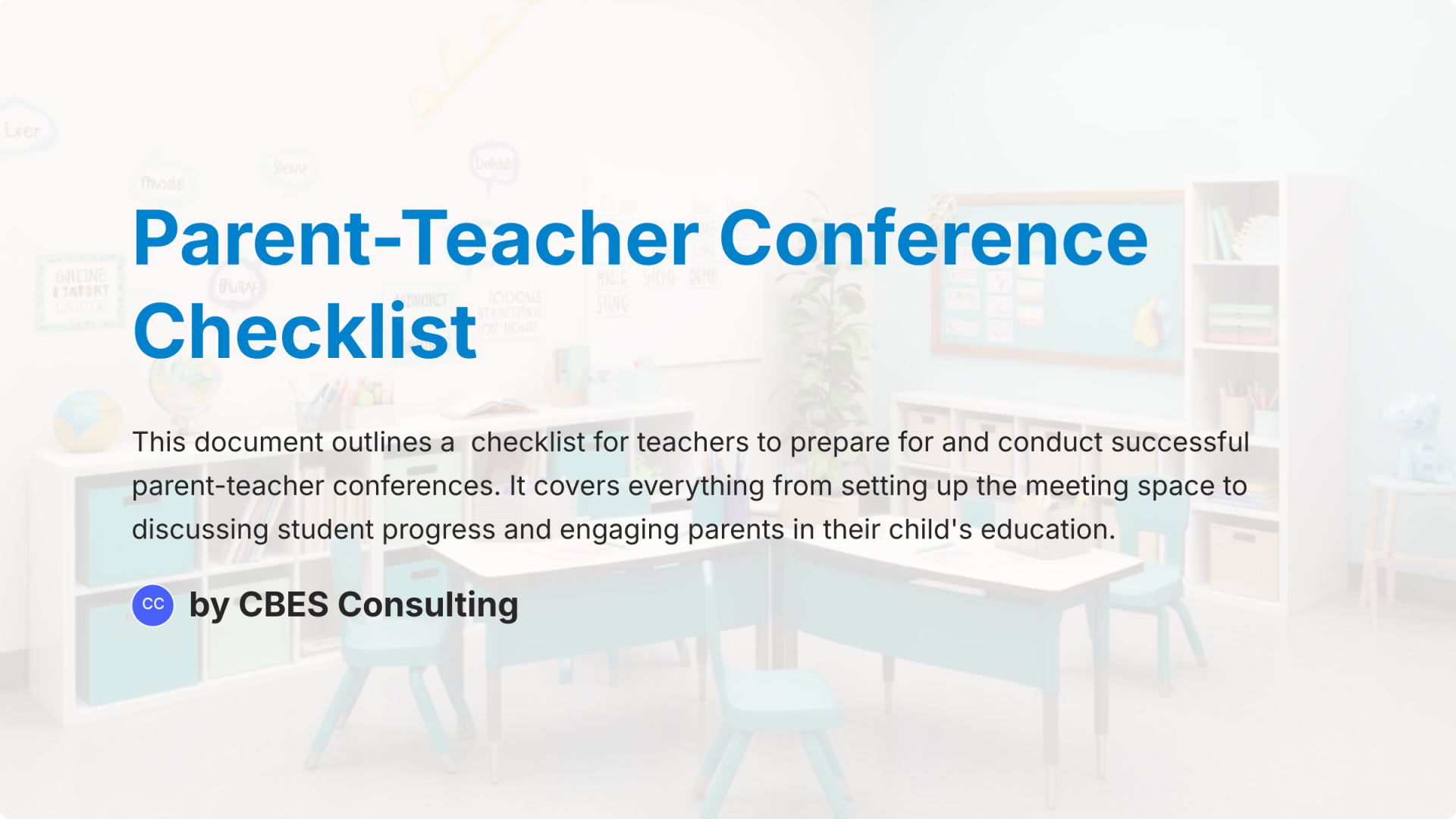
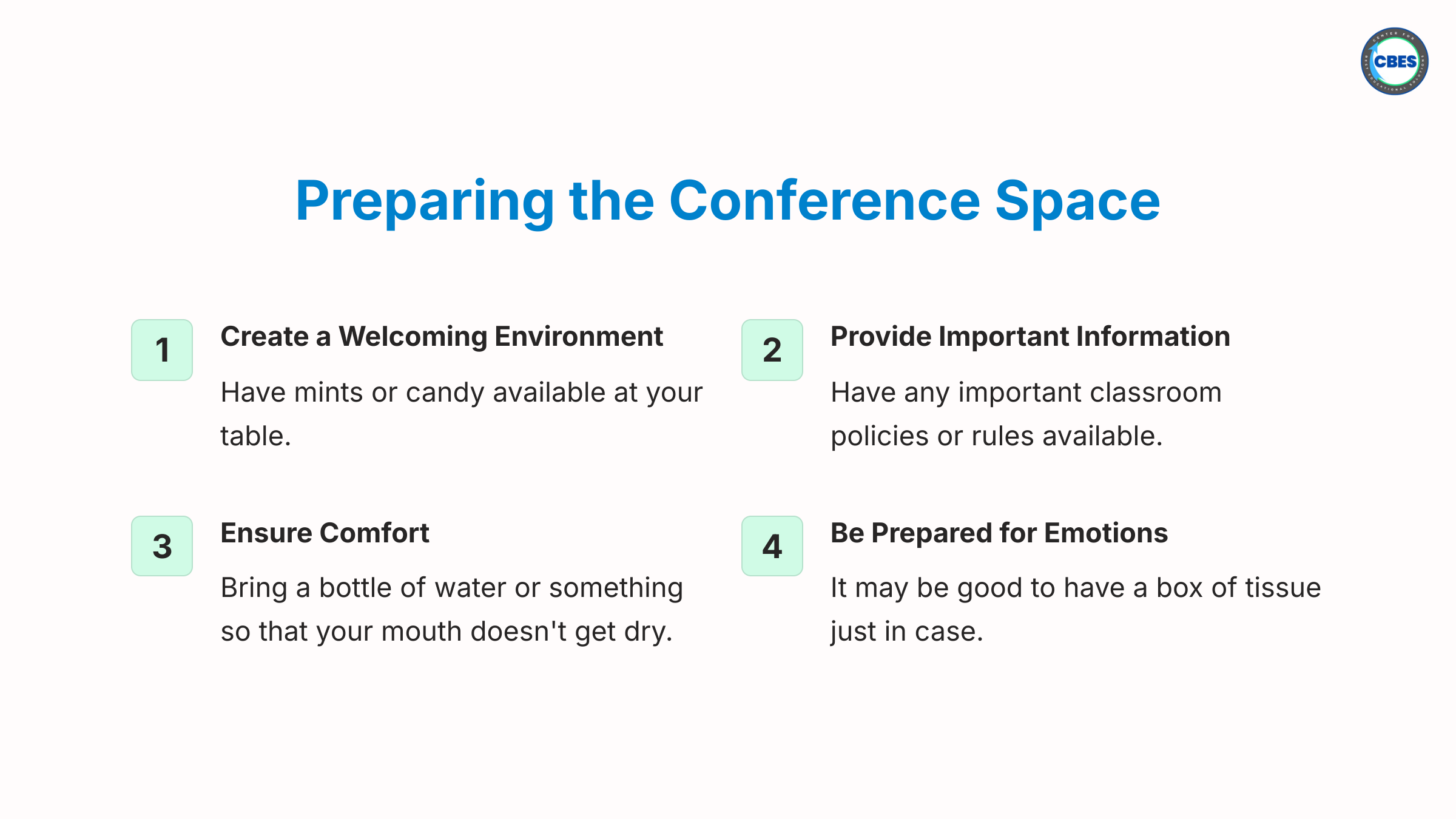
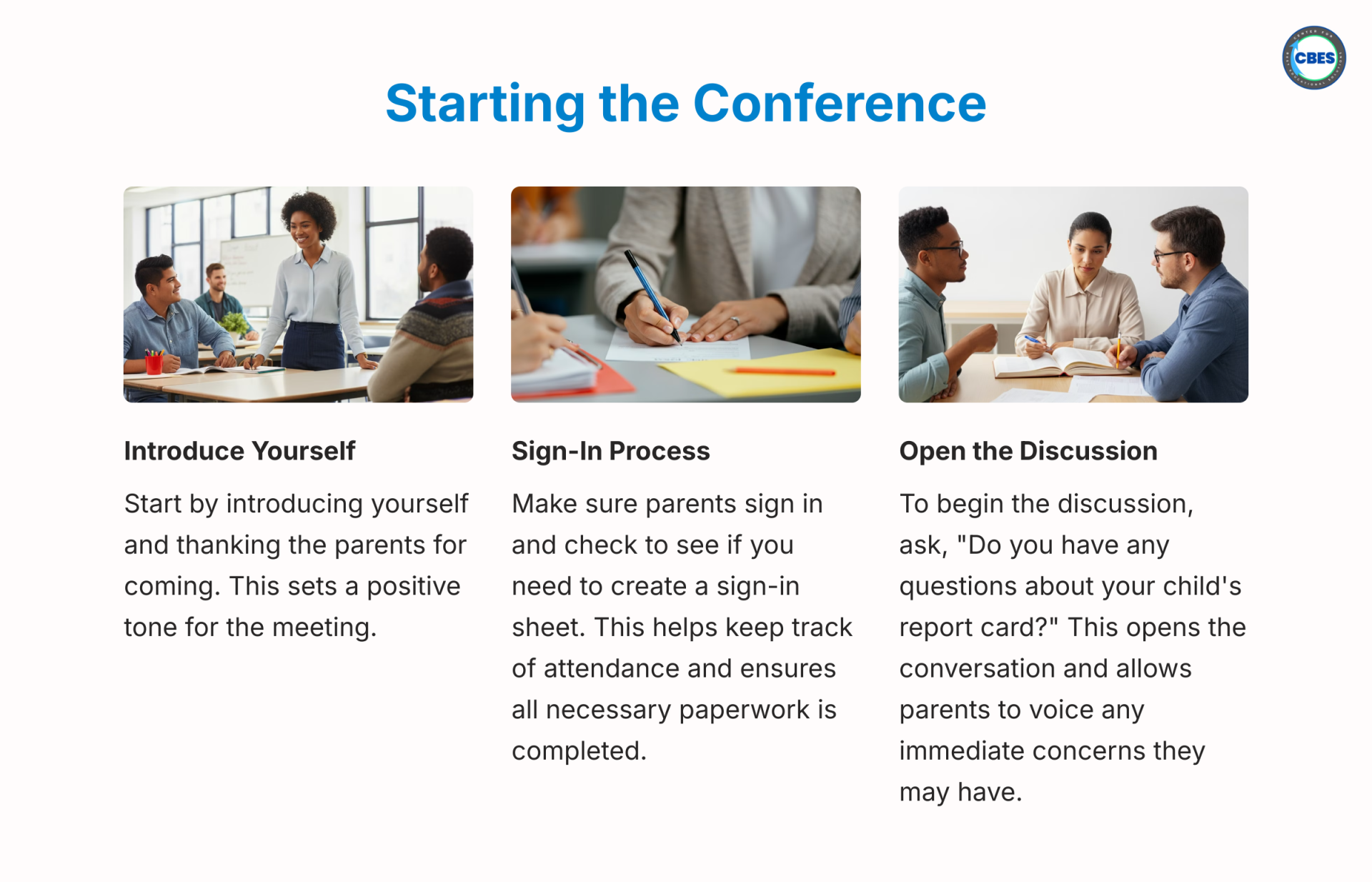
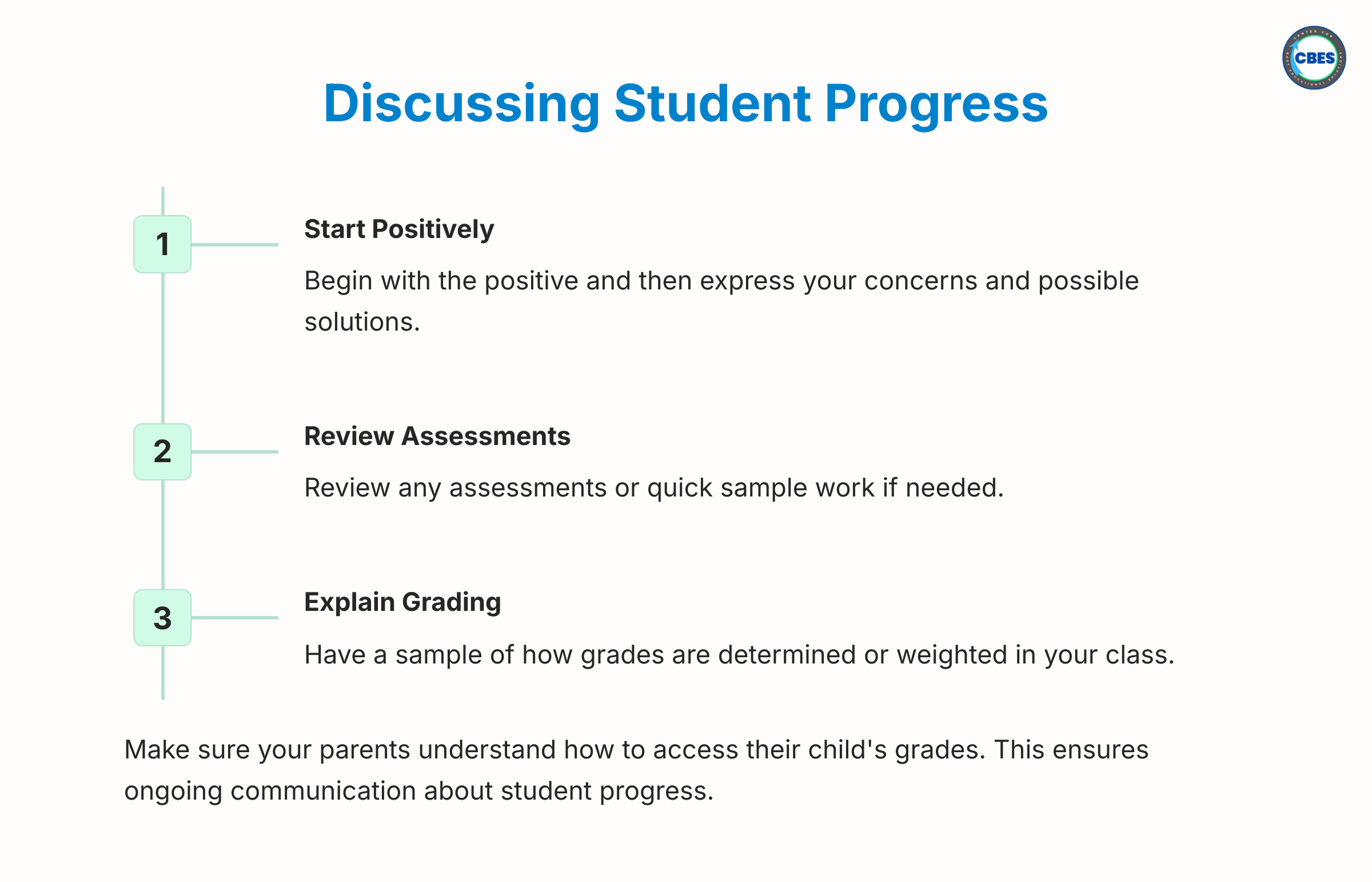
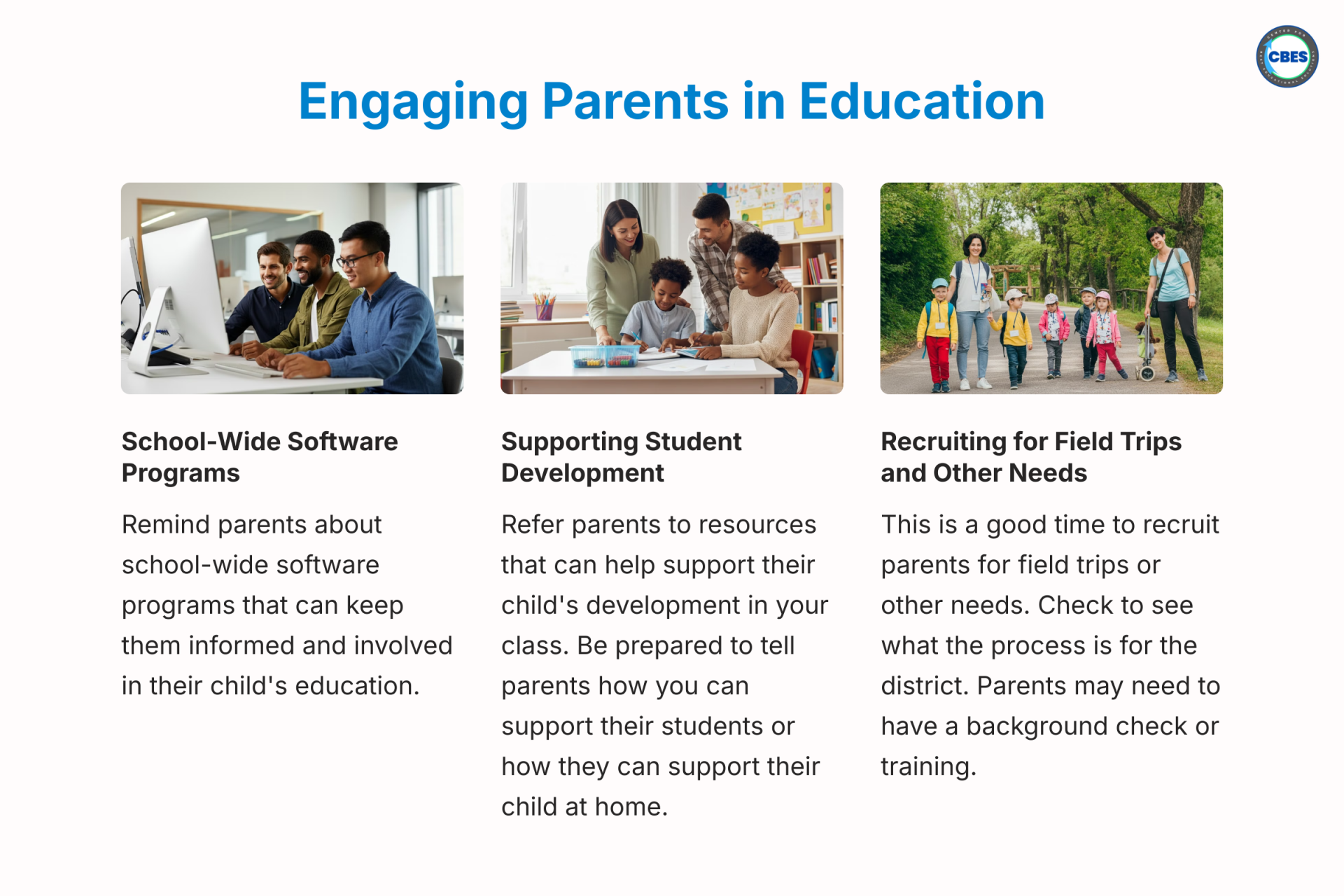
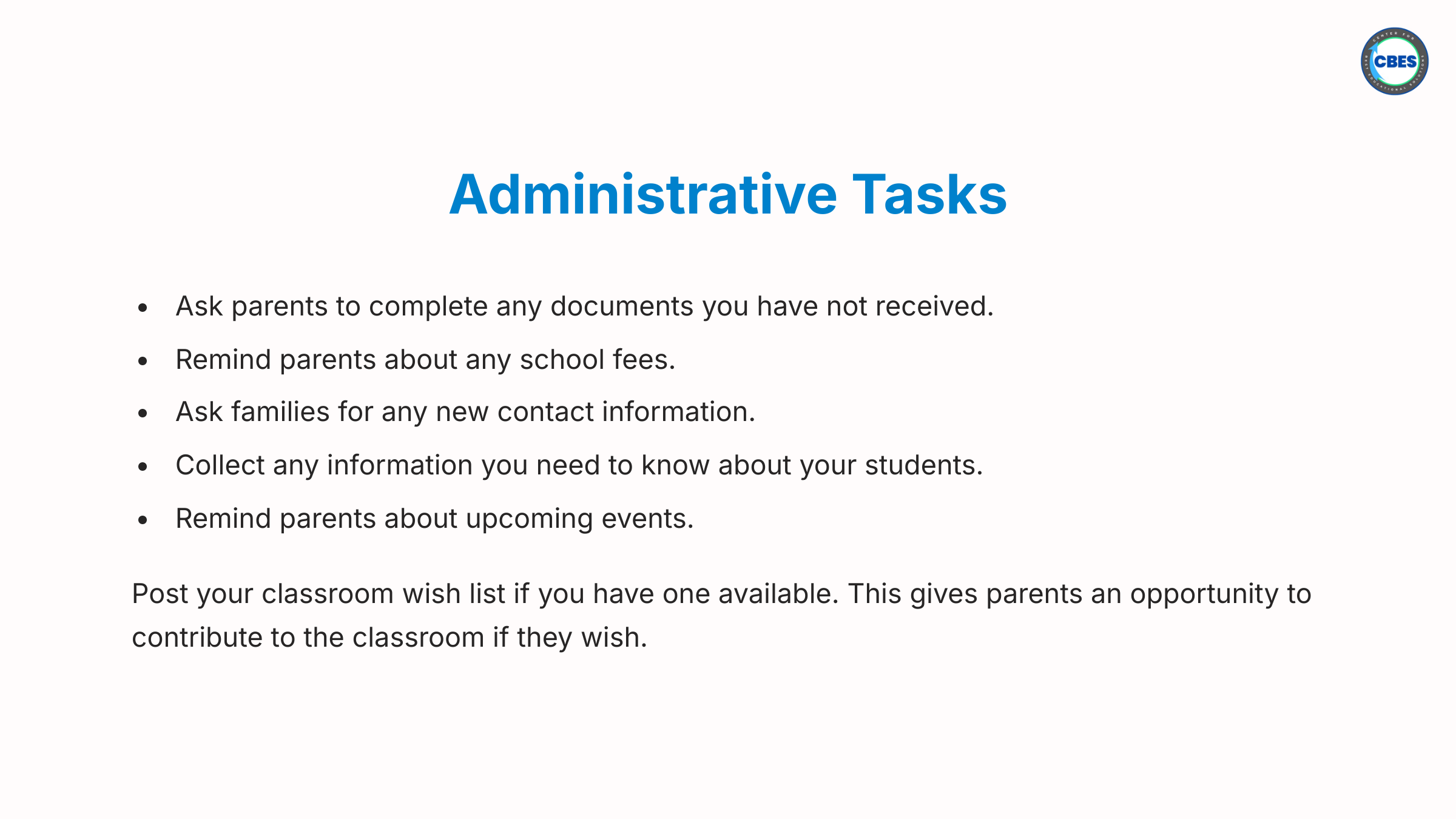
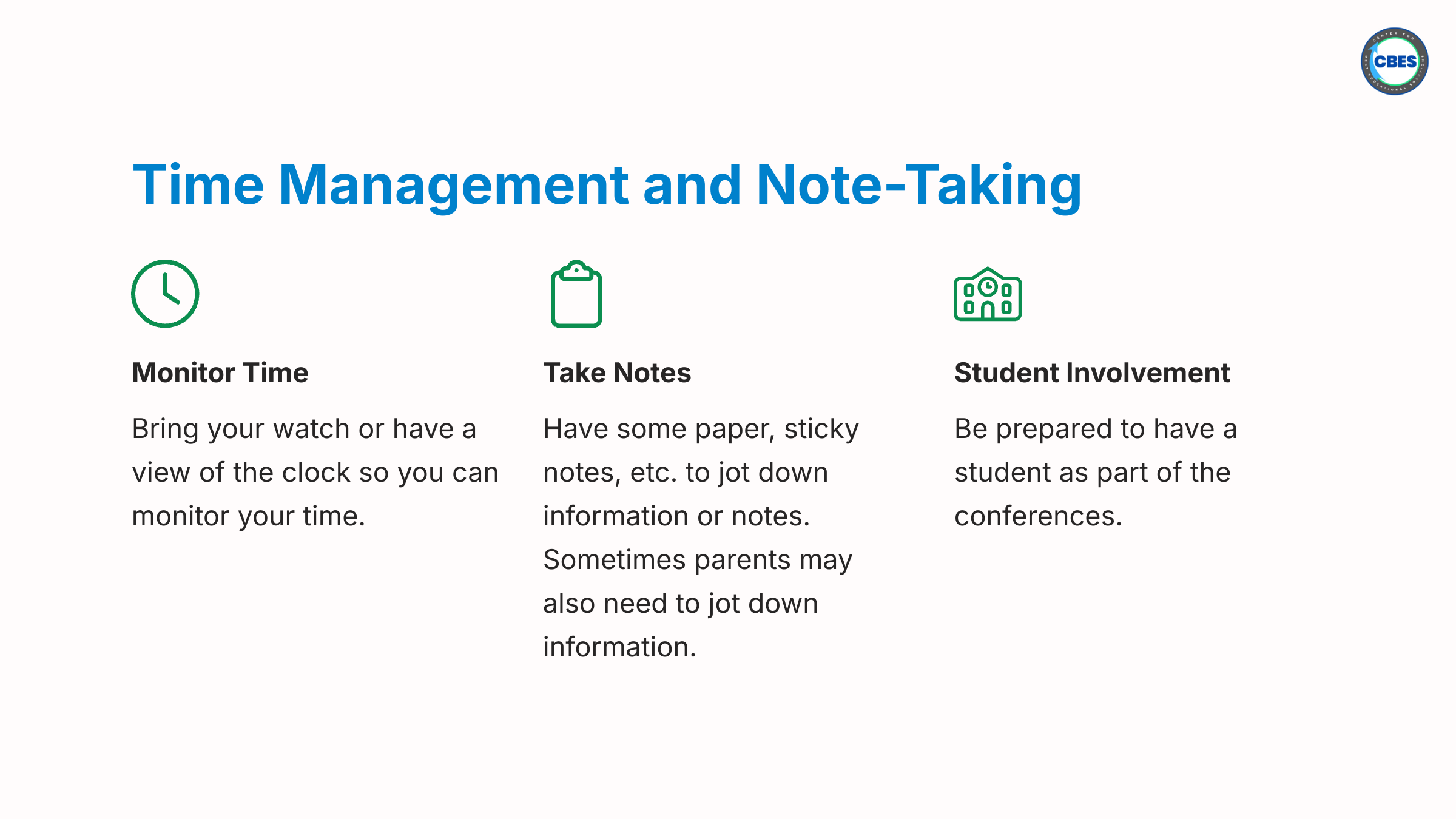
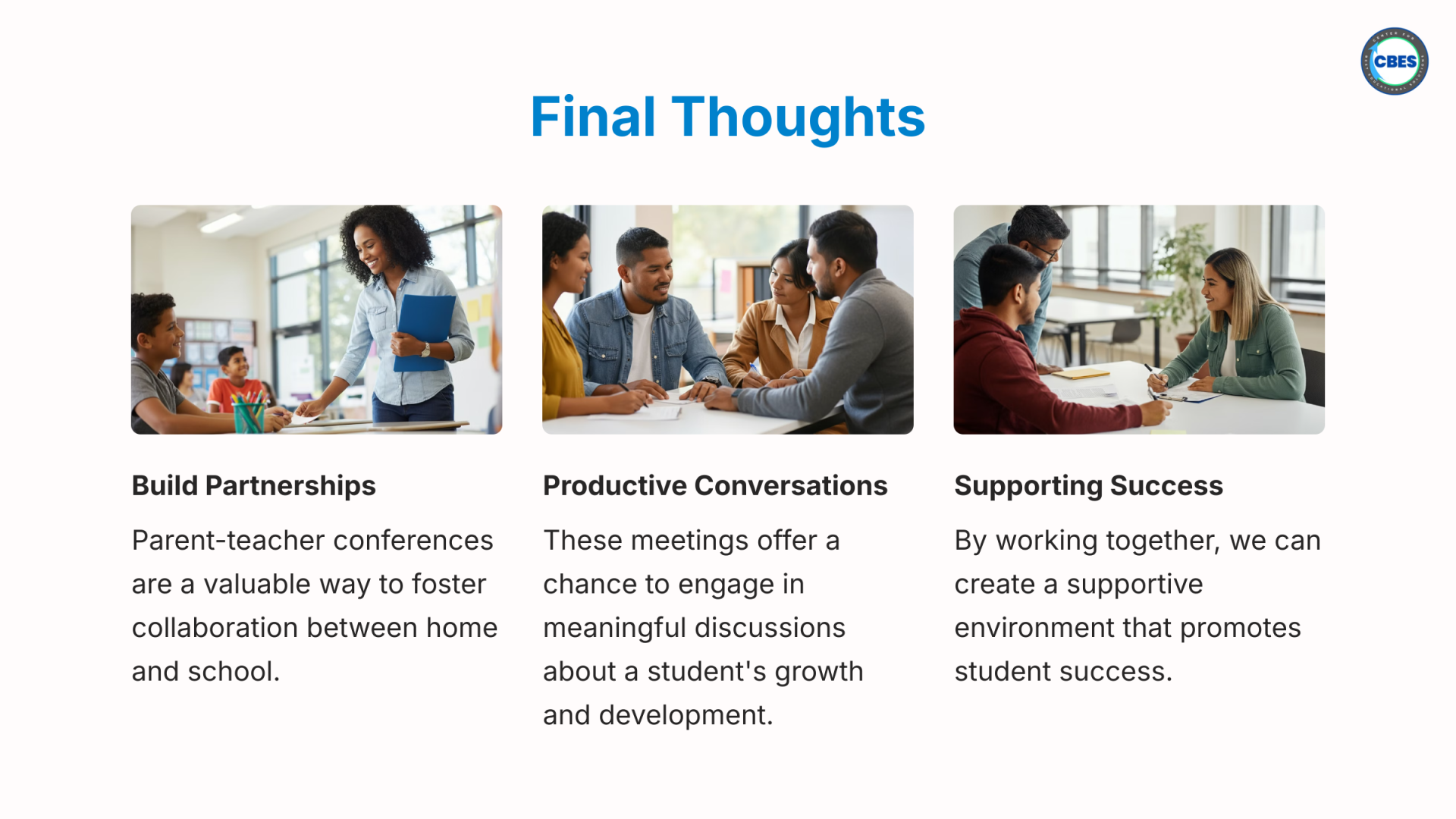
Summary:
Parent Teacher Conferences Tips
Preparation is Key: Before the conference, gather relevant data: student work samples, assessment scores, anecdotal notes on behavior and classroom participation. Knowing your student well allows for a more detailed and insightful discussion.
Focus on Collaboration: Frame the conference as a partnership, not a judgment. Emphasize shared goals for the student's success and invite parents to share their perspectives and insights.
Positive Framing and Specific Examples: Start by highlighting the student's strengths and accomplishments. Then, address areas needing improvement using specific, observable examples rather than vague generalizations. For example, instead of "John is disruptive," say, "John sometimes struggles to stay seated during independent work, which can be distracting to other students."
Active Listening and Empathy: Create a safe space for open communication. Actively listen to parents' concerns, validate their feelings, and avoid interrupting. Show empathy and understanding, even when you disagree.
Actionable Next Steps: Conclude the conference by collaboratively creating a plan with clear, specific, and achievable goals and strategies. Assign responsibilities and set a timeline for follow-up, ensuring both you and the parents know what to expect.
Focus on Collaboration: Frame the conference as a partnership, not a judgment. Emphasize shared goals for the student's success and invite parents to share their perspectives and insights.
Positive Framing and Specific Examples: Start by highlighting the student's strengths and accomplishments. Then, address areas needing improvement using specific, observable examples rather than vague generalizations. For example, instead of "John is disruptive," say, "John sometimes struggles to stay seated during independent work, which can be distracting to other students."
Active Listening and Empathy: Create a safe space for open communication. Actively listen to parents' concerns, validate their feelings, and avoid interrupting. Show empathy and understanding, even when you disagree.
Actionable Next Steps: Conclude the conference by collaboratively creating a plan with clear, specific, and achievable goals and strategies. Assign responsibilities and set a timeline for follow-up, ensuring both you and the parents know what to expect.
"The most powerful tool in a parent-teacher conference isn't a grade; it's the genuine connection forged through open communication and mutual respect."
Achieve your goals

